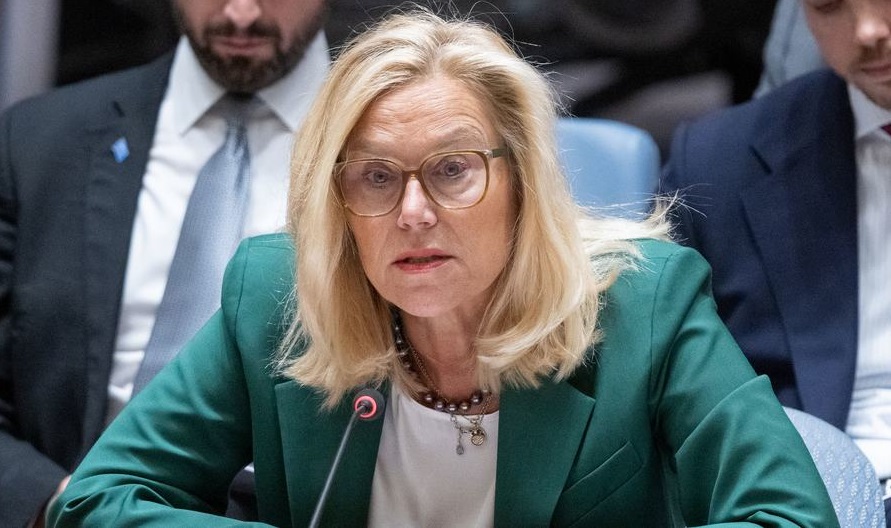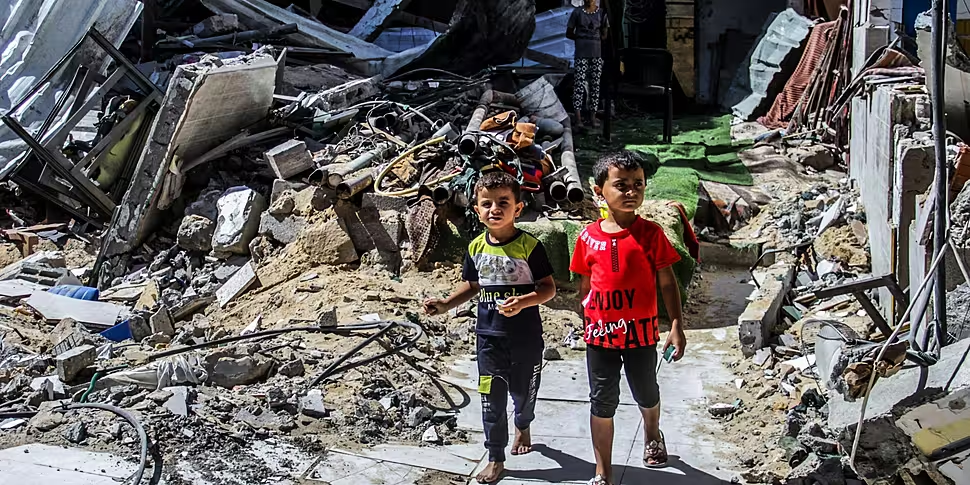Children are to be evacuated from Gaza to receive medical treatment in Ireland under plans to be approved by Cabinet this morning.
In the first wave 30 children will travel alongside a carer who will be accommodated in homes owned by healthcare workers.
The children will be flown in by the European Union after being cleared by Irish medics who will travel to Palestine.
Children with multiple conditions including cancer will be treated - those requiring orthopaedic treatment, however, will not be brought to Ireland.
It comes as the Dáil resumes later today following its summer recess.
More 41,000 people have been killed in the Palestinian enclave since the Israeli war began last October with over 94,000 injured.
Recent data from the World Health Orgainsation (WHO) estimates that over 22,000 people have sustained life-altering injuries.
Severe limb injuries affecting between 13,000 and 17,000 people are "often resulting in amputation".
 Sigrid Kaag, Senior Humanitarian and Reconstruction Coordinator for Gaza, briefs the UN Security Council, 16-9-24. Image: UN Photo/Eskinder Debebe
Sigrid Kaag, Senior Humanitarian and Reconstruction Coordinator for Gaza, briefs the UN Security Council, 16-9-24. Image: UN Photo/Eskinder DebebeOn Monday United Nations Senior Humanitarian and Reconstruction Coordinator Sigrid Kaag told the Security Council that not enough progress is being made in getting desperately needed aid and commercial goods into Gaza.
She recalled that the enclave was largely cut off from most of its supply lines 11 months ago with all but one access point closed.
Ms Kaag said additional routes have been negotiated covering supplies from or via Egypt, Jordan, Cyprus, the West Bank and Israel.
She said the systems in place today are not a substitute for the political will required to reach civilians in Gaza and respond to their needs.
"Effective humanitarian operations require the right quality, quantity, and a broad range of goods to meet the daily needs of civilians in Gaza. That goal is not being met," she said.
She said ongoing hostilities across the Strip, the breakdown of law and order and the looting of supplies are significant impediments to UN efforts to distribute assistance there.
'Time is slipping away'
Ms Kaag said humanitarians are also facing denials, delays and lack of safety and security as well as poor logistical infrastructure.
"This continues to hamper relief operations despite recent approvals provided for trucks, satellite phones and other equipment," and engagement on these issues is ongoing," she said.
"Commitments and intentions need to be translated into tangible actions on the ground" she said, warning that "any delay in implementation comes at direct cost of human lives."
"Time is slipping away as a man-made humanitarian crisis has turned Gaza into the abyss," she said.
Ms Kaag added that there needs to be "an immediate ceasefire, the immediate and unconditional release of all hostages and unimpeded, continuous humanitarian access to deliver aid at-scale throughout the Gaza Strip".
Some 250 Israelis and foreign nationals were taken hostage during the October 7th attack by Hamas and other armed groups in southern Israel, which also claimed over 1,250 lives.
Additional reporting: Sean Defoe









